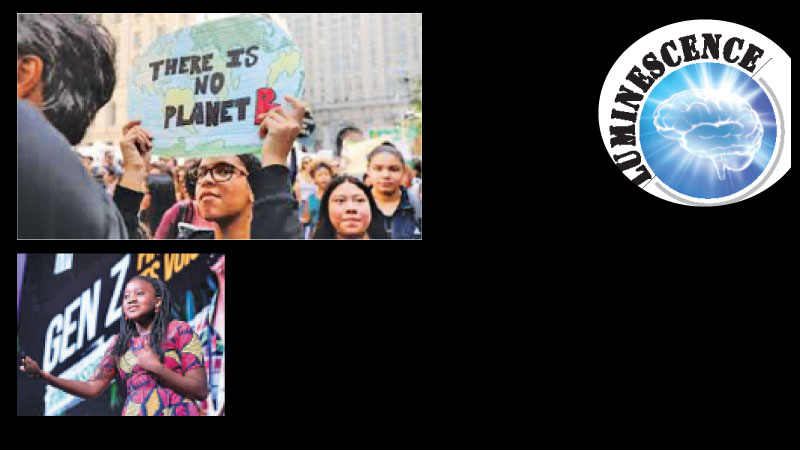 In the early 21st century, activism has undergone a remarkable transformation, much of it shaped by Generation Z. Born between the mid-1990s and early 2010s, this generation has become an influential force in social and political change.
In the early 21st century, activism has undergone a remarkable transformation, much of it shaped by Generation Z. Born between the mid-1990s and early 2010s, this generation has become an influential force in social and political change.
Raised in a world of digital immediacy and exposed to a steady stream of global crises, Gen Z approaches activism with urgency, innovation, and a deep sense of interconnectedness. Their distinctive characteristics and strategies are redefining how movements are formed, spread, and sustained across the globe.
Unlike previous generations, Gen Z came of age with technology embedded in their daily lives. Smartphones, social media platforms, and instant communication are not tools they had to adopt; they are the environment they have always known. As a result, digital activism is not a separate domain but an integral part of their identity. Whether through viral hashtags, short-form videos, or curated informational content, Gen Z uses the internet not only for awareness but for coordinated action.
Movements that once took months to organize can now be mobilized in hours. Campaigns like #BlackLivesMatter, #MeToo, and #FridaysForFuture gained renewed momentum and visibility largely through Gen Z’s digital fluency. They have also demonstrated an exceptional ability to circumvent online censorship, adapt to algorithm changes, and build decentralized networks that operate independently of traditional media or political parties.
Beyond their technological prowess, Gen Z activists bring a distinctive ideological framework to their efforts. At the core is a commitment to intersectionality—the belief that various forms of oppression are interconnected and must be addressed collectively. For this generation, climate change is not merely an environmental issue, but also a racial, economic, and social one. Feminism is not seen through a singular lens but one that includes marginalized identities such as Black women, trans individuals, and those with disabilities. This inclusive worldview shapes not only the issues they prioritize but also the strategies they employ. Gen Z demands authenticity and accountability from both individuals and institutions, challenging superficial reforms and performative gestures that fail to address structural injustice.
Their activism is also marked by a unique approach to accountability. While widely associated with so-called “cancel culture,” Gen Z is increasingly exploring more constructive methods of engagement. Many advocate for a balance between calling out harmful behaviour and calling in individuals to learn and grow. This shift reflects a broader desire to create sustainable change rather than momentary outrage. By fostering dialogue and centering restorative justice, they are attempting to humanize activism without diluting its urgency.
The issues championed by Gen Z are diverse and global in scope. Climate justice, racial equity, mental health advocacy, and digital freedom are central to their concerns. They are attuned to both local and international injustices, often showing solidarity across borders in ways previous generations did not. Their support for movements like the Palestinian liberation struggle, protests against authoritarianism in Iran, and solidarity with Indigenous rights globally demonstrates an acute awareness of interconnected human rights struggles. Importantly, this global perspective is not confined to passive support; it often includes organized fundraising, political lobbying, and sustained digital campaigns.
Social media, for all its utility, is not without drawbacks. Gen Z activists face the double burden of digital fatigue and emotional exhaustion. The constant exposure to crises, coupled with the expectation to remain informed and active, can lead to burnout. Recognizing this, many young organizers are promoting “sustainable activism”—a practice that includes mental health care, boundary-setting, and mutual support within activist circles. This self-awareness adds a layer of resilience to their efforts, ensuring that their passion can endure over time.
Moreover, Gen Z is not satisfied with remaining outside systems of power. Increasingly, they are running for office, founding their own organizations, creating independent media, and sitting on advisory boards. Their skepticism of traditional institutions has not led to disengagement but to the construction of alternatives.
Whether through mutual aid networks, youth-led nonprofits, or decentralized collectives, Gen Z is investing in long-term structures that reflect their values. They are reshaping not only how activism is conducted but also who gets to lead and define it.
Naturally, their approach is not without criticism. Some accuse Gen Z of being idealistic, intolerant, or overly reactive.
Yet these critiques often overlook the depth of their analysis and the effectiveness of their strategies. Unlike many predecessors, Gen Z does not shy away from complexity or contradiction. They embrace ambiguity and understand that progress often requires discomfort and confrontation.
In an age marked by uncertainty, Gen Z’s activism offers both a mirror and a map. It reflects the injustices of the present while pointing towards the possibilities of a more just future. They are not waiting to inherit the world—they are reshaping it now, with conviction, creativity, and courage. If history is indeed written by those who act, Gen Z is already drafting the next chapter.







